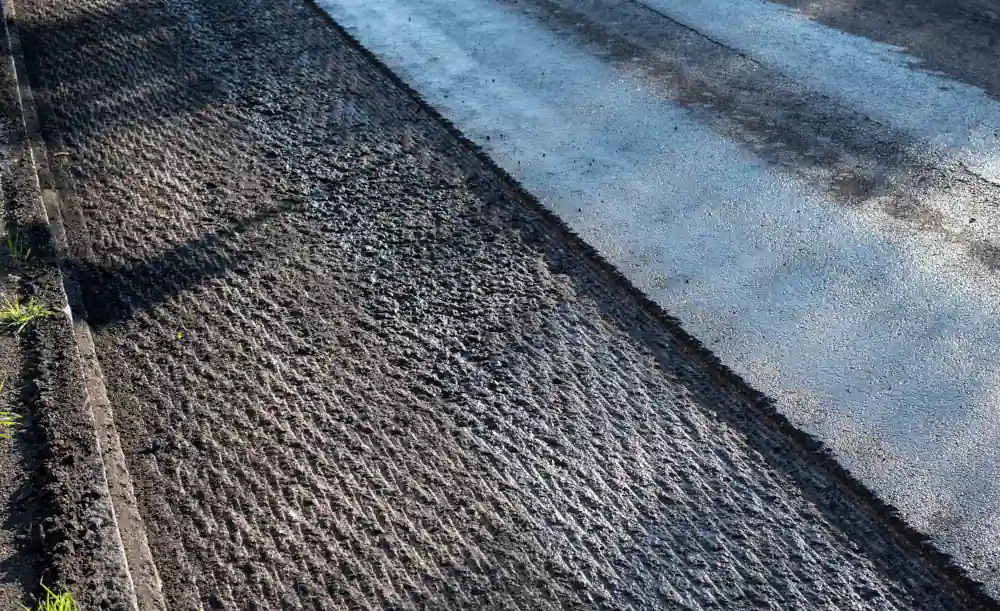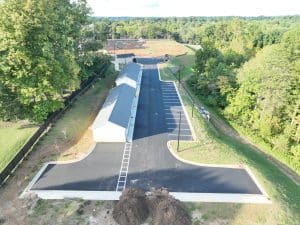In today’s world, sustainability is a key consideration in all areas of construction and infrastructure development. Asphalt paving is no exception. As an asphalt paving company, we recognize the importance of eco-friendly practices and materials in reducing our environmental footprint. This blog will explore various sustainable approaches in asphalt paving, from using recycled materials to adopting green construction methods. Additionally, we’ll discuss how these practices can fit into your budget, especially for commercial property managers.
Recycled Materials in Asphalt Paving
One of the most effective ways to make asphalt paving more eco-friendly is by incorporating recycled materials. Reclaimed asphalt pavement (RAP) is a prime example. RAP is created by milling old asphalt surfaces and repurposing the material in new paving projects. This not only reduces the need for new raw materials but also minimizes waste and conserves natural resources.
Another sustainable material is recycled asphalt shingles (RAS). Shingles, often discarded after roof replacements, can be processed and added to asphalt mix, improving the performance of the pavement while diverting waste from landfills.
By utilizing RAP and RAS, we not only contribute to environmental preservation but also offer a cost-effective solution to our clients. For more on how to integrate eco-friendly practices into your paving budget, check out our blog on Budgeting for Asphalt Paving: Tips for Commercial Property Managers.
Permeable Pavements
Permeable asphalt pavements are designed to allow water to pass through the surface, reducing runoff and promoting groundwater recharge. These pavements are especially beneficial in urban areas where stormwater management is a significant concern. By facilitating natural water filtration, permeable pavements help mitigate flooding and reduce the burden on stormwater systems.
Using permeable asphalt in parking lots and driveways can also improve the aesthetic and functional value of a property. This sustainable solution aligns with the growing emphasis on green infrastructure and resilience against climate change impacts.
Sustainable Construction Practices
Beyond materials, the methods we use in asphalt paving can also be more eco-friendly. One approach is the optimization of project planning to minimize equipment idling and reduce fuel consumption. Additionally, regular maintenance of machinery ensures they operate efficiently, further lowering emissions.
Implementing precision paving techniques can also enhance sustainability. By accurately measuring and applying the asphalt, we reduce material waste and ensure a longer-lasting pavement. This not only conserves resources but also reduces the frequency of repairs and repaving, saving money and materials in the long run.
Conclusion
Eco-friendly asphalt paving is not just about using green materials; it encompasses a holistic approach that includes innovative technologies and sustainable construction practices. By integrating recycled materials like RAP and RAS, adopting WMA technology, installing permeable pavements, and optimizing construction methods, we can significantly reduce the environmental impact of our paving projects.
For commercial property managers looking to incorporate these eco-friendly practices into their budgets, our blog on Budgeting for Asphalt Paving: Tips for Commercial Property Managers provides valuable insights and strategies.
At Prime Paving, we are committed to sustainability and excellence in all our projects. By choosing eco-friendly asphalt paving, you contribute to a greener future while enjoying durable and cost-effective pavement solutions. If you have any questions or need assistance with your next project, feel free to contact us.






